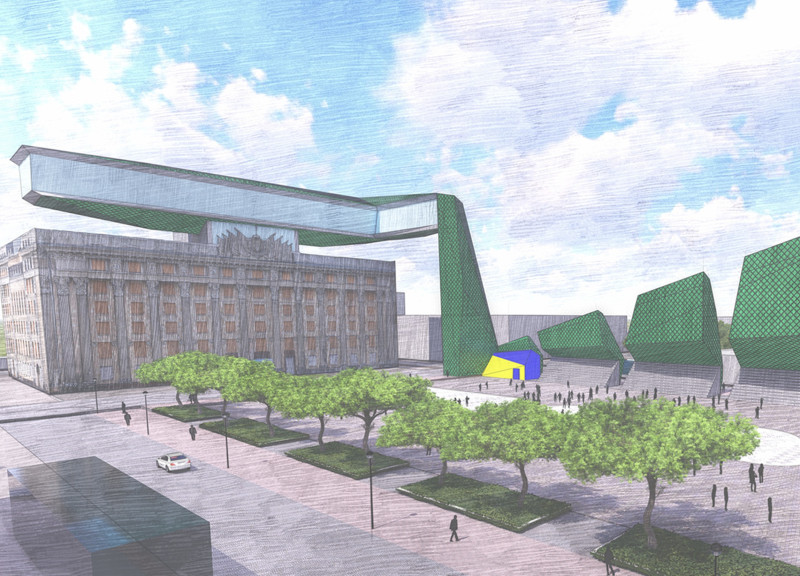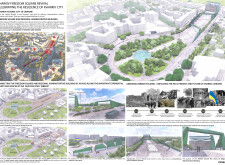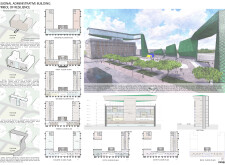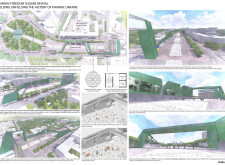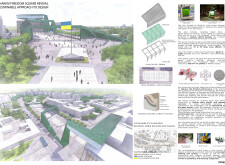5 key facts about this project
## Project Overview
Located in Kharkiv, Ukraine, the revival of Freedom Square is an architectural initiative aimed at revitalizing this historically significant public space and enhancing the Regional Administrative Building as a focal point of cultural heritage and resilience. This project seeks to integrate various societal needs while emphasizing ecological sustainability, reflecting both the rich history and contemporary relevance of Kharkiv.
## Urban Connectivity and Spatial Strategy
The design adopts a "Liberating Ribbon" concept, symbolizing the interconnectedness of Kharkiv’s past, present, and future. At the heart of the design is a continuous pedestrian and cycling pathway that enhances accessibility throughout the square, fostering social interaction and community engagement. The project positions Freedom Square as a central multifunctional area, equipped with amenities like dry fountains and green spaces, which serve as communal gathering points. It strategically aligns with notable landmarks, including Karazin University and the Dezhrprom building, to bolster visibility and connectivity.
## Materiality and Sustainable Technologies
The project employs innovative materials designed to promote sustainability and environmental responsibility. Liquid algae panels feature prominently, serving as bioreactors that capture carbon dioxide and improve air quality. The use of recycled aluminum and glass for the facade not only underscores resource efficiency but also contributes to the building’s structural integrity. Local stone materials are utilized to enhance contextual relevance while supporting the local economy. Additionally, solar panels and green roofs are integrated into the design, enhancing energy efficiency and fostering urban biodiversity through the incorporation of green walls and community-centric public spaces. These elements collectively create an environment that prioritizes ecological sustainability while facilitating public interaction and engagement.


